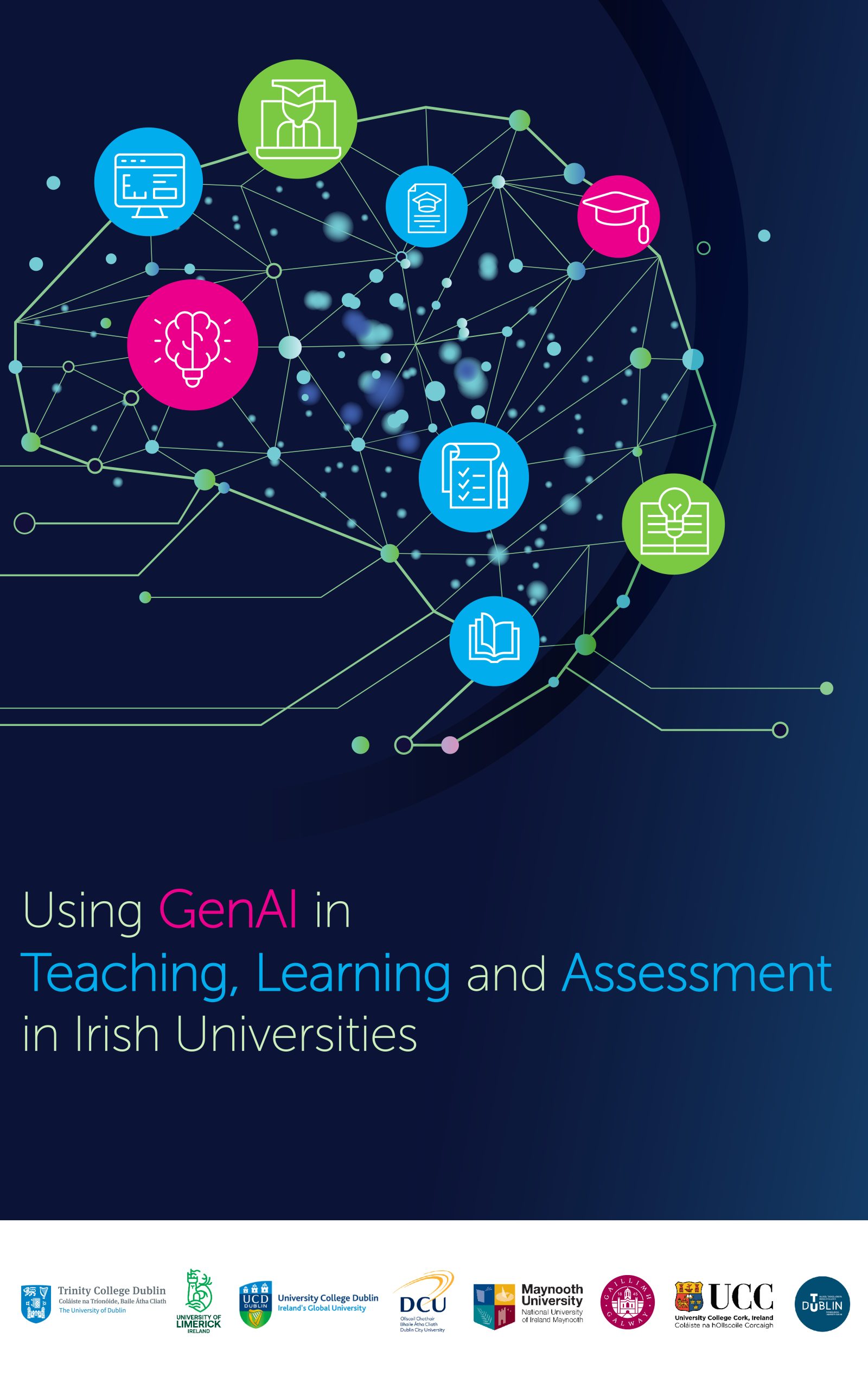Foreword

While Generative AI technologies have existed for many years, recent rapid advances in the field have pushed these technologies into mainstream use across society. As higher education institutions grappled with these new technologies, initial responses focused on potentially significant threats to academic integrity. However, as our understandings have evolved, there is an increasing awareness that these developing technologies also present opportunities for teaching, learning, assessment and research in higher education.
Against this rapidly evolving backdrop, we in the Centre for Academic Practice (Trinity College Dublin) found ourselves faced with new challenges. How could we best support our educators to respond to the challenges of GenAI? How might we influence and support strategic initiatives and policy development regarding GenAI for teaching, learning and assessment at the institutional level? Conscious that our colleagues across the sector were facing similar challenges, we decided to initiate a cross-institutional collaboration with teaching and learning leaders from across the sector, where we could tackle this together!
Teaching and learning networks across the Irish higher education sector are well established, thanks to the National Forum’s valuable work in seeding and nurturing communities of practice, and to the collegiality, support and good will of colleagues across the sector. Building on these networks, we approached teaching and learning leaders from across the seven universities in Ireland with the idea of collaborating to collate and share evidence-based practices in using GenAI to enhance teaching, learning and assessment. We are very grateful to these colleagues for their immediate acceptance of this invitation and for their enthusiasm, commitment and dedication to making our aspirations a reality.
With this publication, we aim to promote AI Literacy, inspire new teaching, learning and assessment approaches and spark innovation across disciplines in higher education.
The process began in January 2024, with 12 collaborating partners from the seven Irish universities, all of whom were teaching and learning leaders within their respective institutions. At this initial gathering, it was agreed that these partners would collaborate as co-editors of an open access publication which would comprise a collection of “use cases” showcasing how GenAI was being used by educators across the sector. Recognising that many staff were still at the “experimentation and exploration” stage of using GenAI, it was agreed that use cases would focus on identifying and sharing experiences, challenges and emerging practices with a view to expanding the knowledge base in this rapidly evolving area and informing future teaching and learning practices.
By June 2024, over 30 use cases had been collated through this collaborative effort. These use cases provide a valuable insight into how educators are responding to the challenges, and taking advantage of the affordances, of GenAI across a wide range of disciplines.
This publication opens with two reflective and insightful chapters from K.C. O’Rourke (TU Dublin) and Billy Kelly (National Academic Integrity Network): both chapters frame, and offer a contextual foundation, for the practitioner-focused use cases which follow. Each use case then captures how GenAI has been used within a particular academic context followed by authors’ critical reflections on their experiences. These reflections underline the value of each use case as a meaningful learning opportunity: both for the authors themselves and also for you the reader.
We hope that these use cases inspire you to build upon the learning of others and harness the potential GenAI within your own practice.
Ana Elena and Pauline.
Co-Editors of this open-access book:
Dr Martina Crehan. Dublin City University
Dr Mary Fitzpatrick. University of Limerick
Ms Leone Gately. University College Dublin
Dr Loretta Goff. University College Cork
Dr Iain Mac Labhrainn. University of Galway
Dr Caitriona Ní Shé. Trinity College Dublin
Ms Lisa O’Regan. Maynooth University
Dr Sarah Thelen. University College Cork
Dr Leigh Wolf. University College Dublin
Cover Design : Ms Florentine Poissonnier Faur. Images at the top of each example were created with Copilot.
We extend our heartfelt gratitude to Billy Kelly, Chair of the National Academic Integrity Network, and Kevin O’Rourke from Technological University Dublin, for their invaluable contributions to frame the teaching, learning and assessment practices of this publication.
We greatly acknowledge Dr Caitríona Ní Shé, Dr Claire McAvinia and Kevin O’Connor for their invaluable contribution to the final editing process of this open resource.
Note to readers:
This is a live publication. If you are interested in contributing to this open resource and sharing your practice, please contact schalka@tcd.ie.

